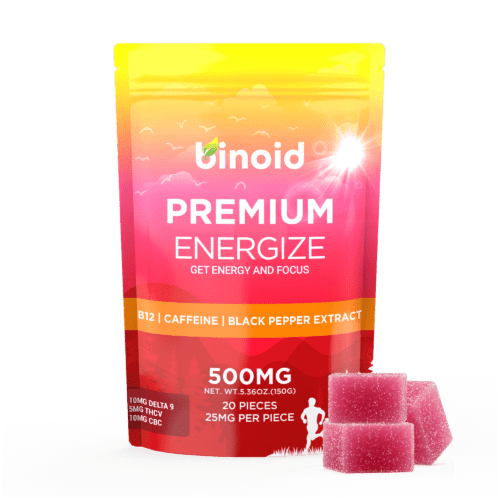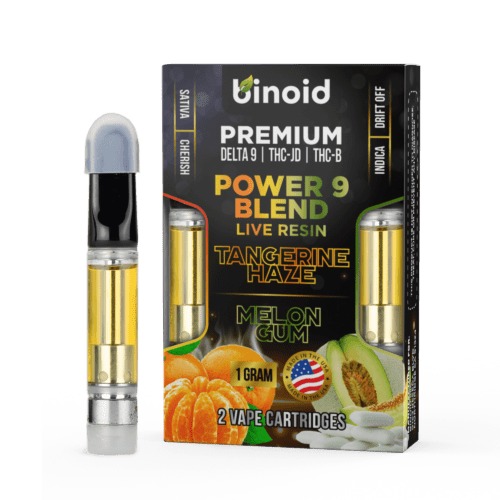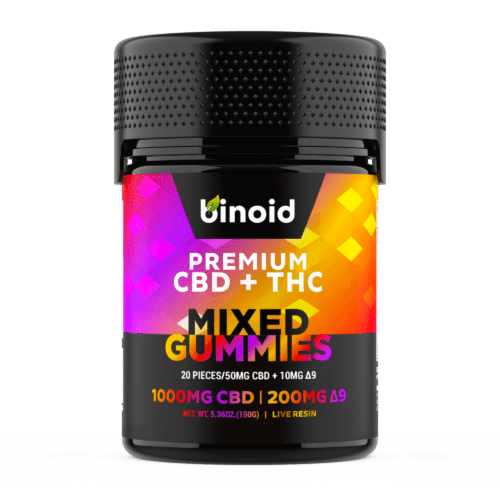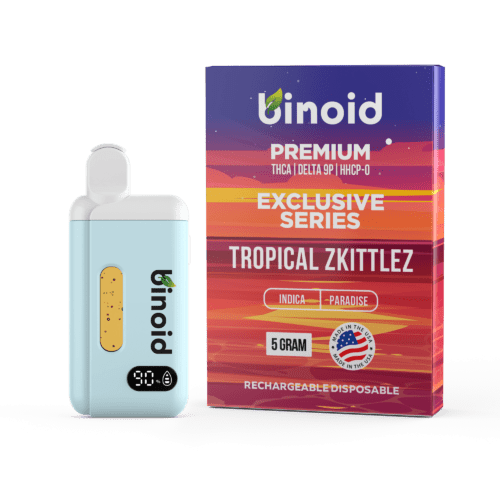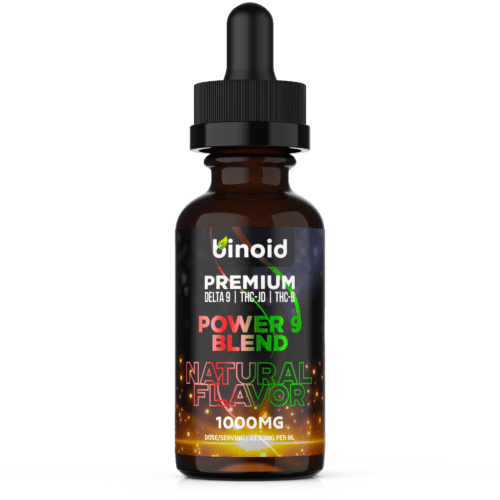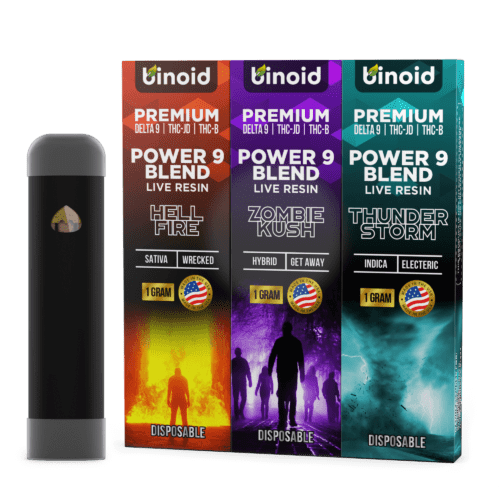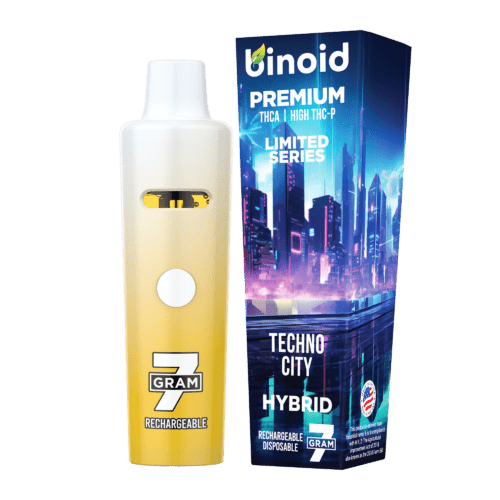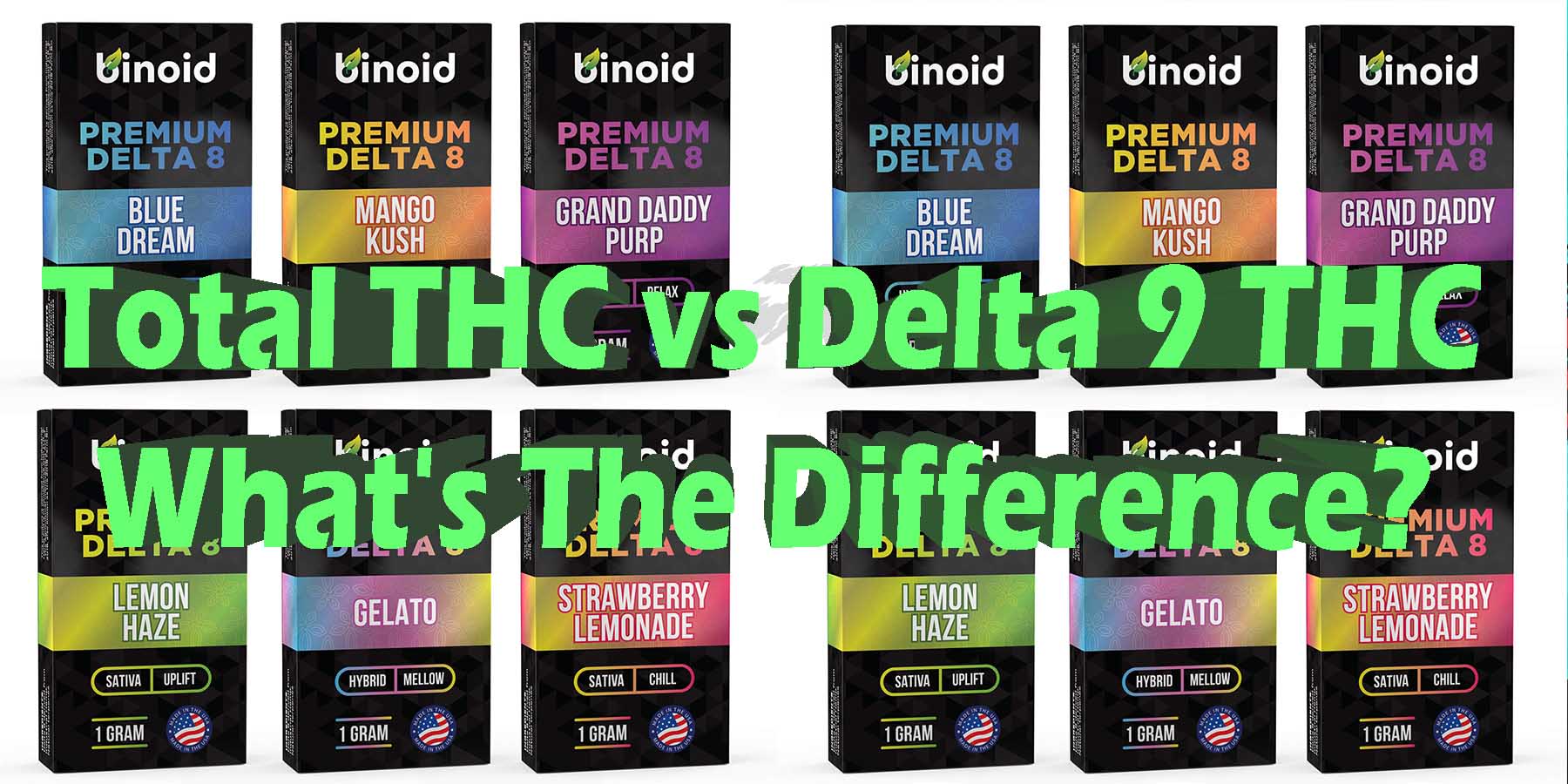
Total THC vs Delta 9 THC: What’s The Difference?
As delta 9 products are making their way onto the hemp market, we recognize that some hemp enthusiasts may be confused given the fact that delta 9 THC is a banned cannabinoid under federal law. Naturally, brands like Binoid wouldn’t be selling illegal products to customers, which is why it’s important to explain delta 9 laws in as much detail as possible.
This is to help you understand why these products are, in fact, federally compliant, and to also to give you a better ideal of whether or not these products are actually legal in your state.
TO BUY THC PRODUCTS CLICK HERE
-
Product on sale
 Functional THC Gummies$33.99
Functional THC Gummies$33.99$59.99
Delta 9 THC Under Federal Law
The hemp plant was legalized in 2018 by the United States, as a result of the passing of the Farm Bill. This determined that the hemp plant could be legally sold along with its derivatives, as long as no product contains more than 0.3% delta 9 THC by dry weight, total. The law continues to prohibit sales of any marijuana products.
Federal Law and Cannabis Testing
As part of the Farm Bill, companies producing hemp products must have their formulas tested to ensure that they maintain the legally compliant amount of delta 9 THC. This can be tested for using one of two methods that need to be always kept in mind.
Method #1: Post Decarboxylation
Decarboxylation refers to the heating of compounds in hemp to “activate” them and convert them into cannabinoids that provide specific effects. For instance, tetrahydrocannabinolic acid (THCA) is the raw, acidic precursor to THC, which does not take on the properties we associate with the cannabinoid until it’s exposed to 220 degrees for about 30 to 45 minutes.
Method #2: High-Performance Liquid Chromatography
High-performance liquid chromatography referrers to each individual compound being isolated, identified, and quantified. It pushes pressurized liquid solvents through the sample of hemp, with each compound interacting in a distinctive way to change the rate of flow. This allows each compound to be isolated and easy to observe.
Both of these testing methods will tell you how much delta 9 THC is in a sample of hemp. But, the second method, unlike the first, doesn’t require that THCA is converted into delta 9 THC via decarboxylation. Essentially, this means that a sample of hemp can be tested to show low levels of delta 9 because it is a pre-decarboyxlated sample.
The USDA does not require one testing method over the other, which means that this testing process is completely compliant with the law. However, some states have taken issue with this potential loophole, and adjusted their laws accordingly, which we will get into more later.
Because of this confusion in testing methods, some states have a restriction on the amount of delta 9 THC (0.3%, as seen in federal law), and others have laws about what they call “total THC,” which accounts for the combination of delta 9 THC and THCA, the pre-decarboxylated form that is detected through chromatographic testing.
-
Product on sale
 Delta 9 THC Gummies$30.99
Delta 9 THC Gummies$30.99$54.99
Which States Use Delta 9 THC vs. Total THC?
To help bring some clarity, let’s break down which states require 0.3% or less delta 9 THC, and which require 0.3% or less total THC.
States That Look for a Maximum of 0.3% Delta 9 THC, as Explicitly Indicated in the Law:
- Alabama
- Arizona
- Colorado
- Florida
- Hawaii
- Illinois
- Kansas
- Louisiana
- Maine
- Mississippi
- Montana
- New York
- North Dakota
- Tennessee
- Texas
- Vermont
States that Look for 0.3% Maximum Total THC (delta 9 THC plus THCA):
- Arkansas
- Minnesota
- Oregon
- Rhode Island
States that Do Not Differentiate Between Total THC and Delta 9 THC:
- California
- Connecticut
- Georgia
- Indiana
- Iowa
- Kentucky
- Massachusetts
- Michigan
- Missouri
- Nebraska
- Nevada
- New Jersey
- New Mexico
- North Carolina
- Ohio
- Oklahoma
- Pennsylvania
- South Carolina
- Utah
- Virginia
- Washington State
- West Virginia
- Wyoming
-
Product on sale
 Power 9 Blend Tincture – 1000mg$34.99
Power 9 Blend Tincture – 1000mg$34.99$59.99
What this all means is that these states aren’t concerned about the discrepancy between the two types of testing methods used to quantify the amount of THC in a hemp product. Therefore, delta 9 THC products derived from hemp would be considered legal in these states as long as they contain a maximum of 0.3% delta 9 THC by dry weight.
So, that leaves us with three states that we haven’t yet mentioned, because they are the only states that strictly prohibit delta 9 THC, even in the trace amount that occurs in hemp. This means that in these states, hemp products must, by law, contain 0% delta 9 THC, despite federal law permitting up to 0.3%:
- Idaho
- New Hampshire
- South Dakota
And, on top of that, it’s important to bear in mind that this “0.3%” law only refers to hemp products. States in which marijuana is legal permit only this amount in hemp-derived products, but marijuana products may contain more than 0.3% by far.
Note: The hemp market is constantly evolving to offer new ways to experience the compounds found in the plant material, with delta 9 THC being the latest of many. Since state laws are constantly changing, you’ll need to keep up to date with what your state says about delta 9 as well as delta-9 testing standards, in order to make sure that you continue to comply with your local legality.
Applying This Information to Your Delta 9 Experience
Now that you have an understanding of laws relating to “total THC” vs. “delta 9 THC” content, you may be wondering what this means when it comes to purchasing the newly emerging delta 9 THC products. Well, first of all, you’ll obviously need to avoid these products if you live in Idaho, New Hampshire, or South Dakota.
- If you live in one of the few states that considers “total delta 9 THC” as valid for testing, then you’ll need to make sure that the product you’re buying shows in lab reports to have no more than 0.3% total delta 9, which will either be displayed in one line on the chromatography report or be broken down between delta 9 THC and THCA levels, which can be combined to come up with the sum THC total.
- If you live in a state that does not differentiate between the two, or clearly expresses that they only count the amount of delta 9 THC, then you’re in the clear, and can try out the different delta 9 products that contain 0.3% THC by dry weight.
- The hemp plant was legalized in 2018 by the United States, as a result of the passing of the Farm Bill. This determined that the hemp plant could be legally sold along with its derivatives, as long as no product contains more than 0.3% delta 9 THC by dry weight, total. The law continues to prohibit sales of any marijuana products.

